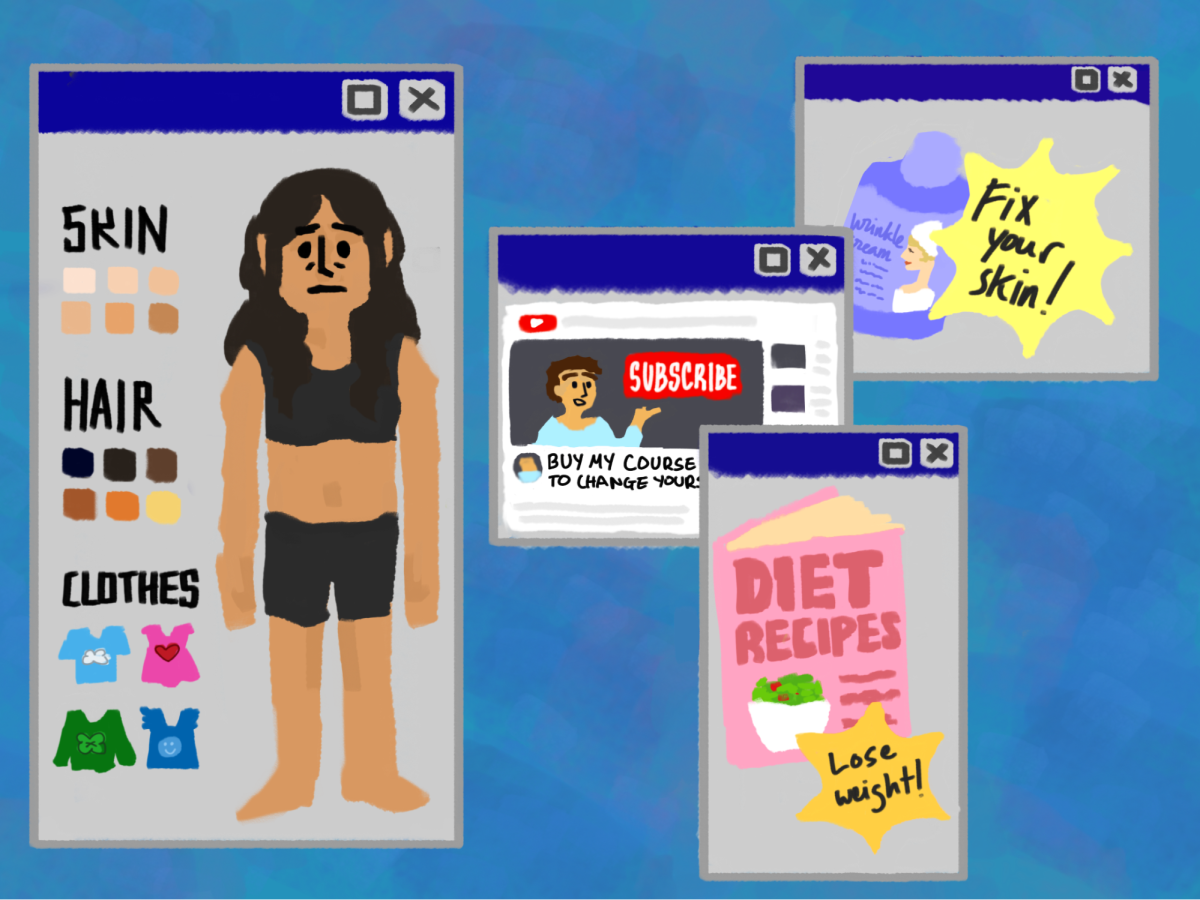“5 Steps to a Better You!” “Manifest Your Dream Life!” “Top 10 Habits You Need to Do Now!”
These flashy and attractive slogans have become a consistent buzz in our daily lives. Since the beginning of 2025, many of us have embraced the all-too-familiar mantra “New Year, New Me” to signify a meaningful transition into our next era. We are urged to become the best version of ourselves by a cheerleading team of social media influencers, wellness gurus, and best-selling books pervading our feeds. Yet, amid this surge of self-improvement rhetoric, one question persists in our peripheries: when does the pursuit of self-help cross the line into harm?
At its core, the desire for self-improvement is rooted in our fundamental need to understand and solidify our identities. Teenagers especially are in a phase marked by uncertainty, in which we navigate shifting priorities and social pressures. The lack of agency in our formative years also compels us to chase the illusion of control over ourselves and our environment. Consequently, the promise of a “new me” becomes powerful when it offers us a sense of direction and purpose when our place within the world is still to be determined.
However, the pursuit of change often shifts into a search for “flaws” that need to be “fixed.” Social media, in particular, exacerbates this tendency by filling our explore pages with flawless transformations and inspirational influencers that claim to hold the secrets to achieving our idealized selves. Such portrayals of constant, unyielding perfection subtly suggest that something wrong with us needs to be corrected—after all, if they did it, so can we! And the solution, of course, lies in the latest “run-don’t-walk” product, self-care regime, or twelve-step routine.
This brings us to the crux of the problem: the self-help industry thrives on the notion that something is inherently broken within us. Instead of promoting genuine well-being, many self-help trends contribute to a consumerist mentality, encouraging us to purchase more regimen products or subscribe to courses that guarantee enlightenment upon their completion. The pressure to craft a curated version of happiness even extends to sanitizing ourselves of unpleasant experiences or “toxic” relationships altogether, placing immense pressure to eliminate any aspect of our lives deemed as “flawed.” The implication tells us that to be truly “healed,” we must eradicate anything that does not align with our polished, perfect ideal. As a result, we are taught to reject the very parts of ourselves that are essential for genuine growth.
Viewing self-worth as a commodity causes happiness to become an elusive goal—a destination we are forever chasing but can never fully attain. The cycle is endless as we fixate on our perceived shortcomings, consume more self-help content, and then feel compelled to change once again when the next new solution crosses our feed. This pattern blinds us into believing that our self-worth hinges on perpetual reinvention, setting ourselves up for failure in the long run.
True change recognizes happiness as not an end goal but a gradual practice. It requires embracing our imperfections to become a better version of who we already are. Rather than following the one-size-fits-all narrative presented by social media, we can set realistic goals that suit our personal desires and values. This involves stepping out of our comfort zones to foster genuine connections with others rather than surrounding ourselves with people or content that only reinforces a cherry-picked version of life. Growth is an ongoing, complicated, and non-linear process that honors our whole selves, not just the parts that need “fixing.”








